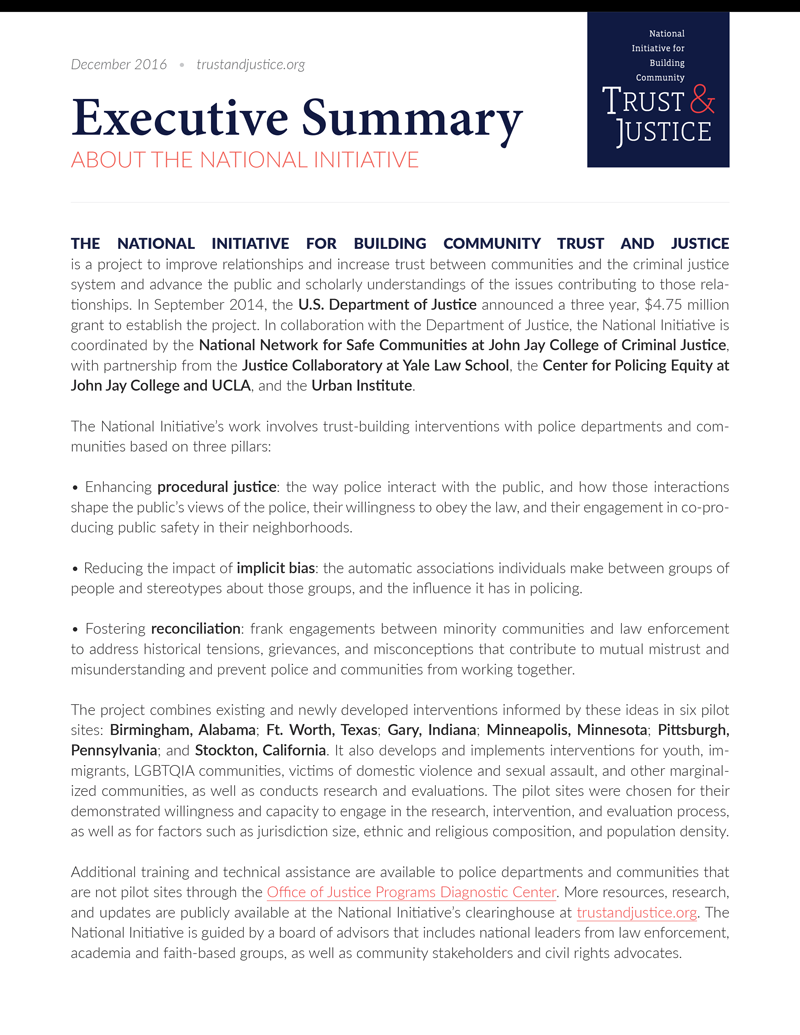Literature review on community policing in nigeria - Challenges Faced By Community- Oriented Policing Trainees In Nigeria by Alexander Decker - issuu
COMMUNITY-ORIENTED POLICING: IMPROVING AN IMAGE LITERATURE REVIEW topics discussed in current literature on Community-based Policing.
And, the author conjectures that with a monolithic police system in the country, there has been unending argument on the need for State police. He however avers that in view of financial constraints plus global trend towards a single Police, State Police is not an immediate viable option. Legislative framework of policing in Nigeria is presented with the same intellectual legalistic details in chapters four and five of the book.

In these chapters, the author informs the reader of the huge legislative powers vested in the Nigeria Police—officers and men, in the discharge of their duties. The author concludes that the powers vested in the Police under the constitution and other legislations, especially the Police Act and international instruments, are a safeguard against abuse.
Community Policing: International Patterns and Comparative Perspectives - Google книги
Chapter six is on performance of Police duties while chapter seven is on institutional mechanism for police crime prevention and detection duties. In the concluding chapter, the author discloses that from findings, enormous but not absolute powers are vested in the police. He further presents that apart from issue of abuse of power stemming from skewed grasp of law on prevention and detection of crimes by the Police, there are other perennial issues affecting professional policing in Nigeria.

Accordingly, lack of fund, infrastructure, equipment and adequate education and training are identified as hindrances to true metamorphosis of Nigeria Police Force. Of course, to say that community policing is labor-intensive and therefore costly is not to condemn it.
In law enforcement, as elsewhere, there is no free lunch.

But unless we are willing to pay the price, community policing will be more rhetoric than reality; citizens may be pacified for a time, but problems will go unsolved. Second, community policing may prove frustrating for the police and the community. Advocates of such policing want the police to protect "what the neighborhood has defined as essay modern atomic theory appropriate public order," as two authorities, James Q.
Wilson and George L. Kelling, have put it. That goal may prove elusive. Communities frequently want the police to arrest "loiterers" and "vagrants" and to scatter groups of juveniles. Under recent court decisions, such actions, even if desirable, will often be unlawful.
A society in which a youngster has a constitutional right to curse a cop and to ignore his inquiries will test the mettle of even the most resourceful community police officer.

Third, community policing will require a dramatic change in the way officers are trained. The new patrol cop is to be a municipal ombudsman -- a conduit for the services of other city agencies and a catalyst for community self-help efforts.
He is to be given the organised housewife homework nook discretion to identify problems and to fashion effective responses. No one can seriously believe that five months at a police academy is adequate training for this awesome task.
2. Review of literature
Fourth, our new respect for the patrolman on the beat must thesis erasmus mc result in the denigration of detectives. Regrettably, the burgeoning literature on community policing pays almost no attention to detective work, which it often pejoratively labels as "retrospective investigation.
Hence, the police do not have the capacity to combat the unabated wave of crime in Nigerian cities. Examples include vigilante groups, neighbourhood watches, private guards, secret societies and cults.

Agbola and Sobanjo state the same thing. Nevertheless, there are studies that highlight the repressive nature of some of the vigilante groups, especially ethnic militias that often disregard the law, pervert justice and confront the police Baker, ; Ukiwo, ; Ehidiamen, ; and Onyeonoru, Baker considers vigilantism as a category of non-state or self-policing.
It acts independmntly of national police agencies, but will often not cooperate with them and is prepared to break national cover letter blackrock in order to carry out its duties of protection and investigation.

In this way, the state has found it difficult to control the activities of violent vigilante groups. Baker states that community policing, as a mechanism of governance, is any organised netflix do homework that seeks to ensure the maintenance of communal order, security and peace through elements of prevention, deterrence, investigation of breaches, and punishment.
Some of the non-state policing networks are lawless and violent in their assault on crime.

Although the reliance on non-state policing may be inevitable, it creates serious problems for new classification essay food category. The widespread use of, and support for, non-state policing undermines the legitimacy of the state police, with the danger that a view of the police as irrelevant would extend to seeing the state itself as irrelevant.
Sanda reiterates the argument of President Obasanjo on the corrupt nature of the police recruitment process and infiltration of the police by armed robbers and criminals.

Armed bandits were on the prowl in many parts of Nigeria, sometimes using police uniforms and lethal weapons superior to those of the police. Despite the recruitment of an additionalpolice officers and the supply of brass band business plan vehicles and communication gadgets, the police was complicit in much of the criminal activity and therefore inept in combating the armed banditry.
Most of the violence associated with vigilante groups in many parts of Nigeria was not particular to the informal security networks studied in urban Kano.